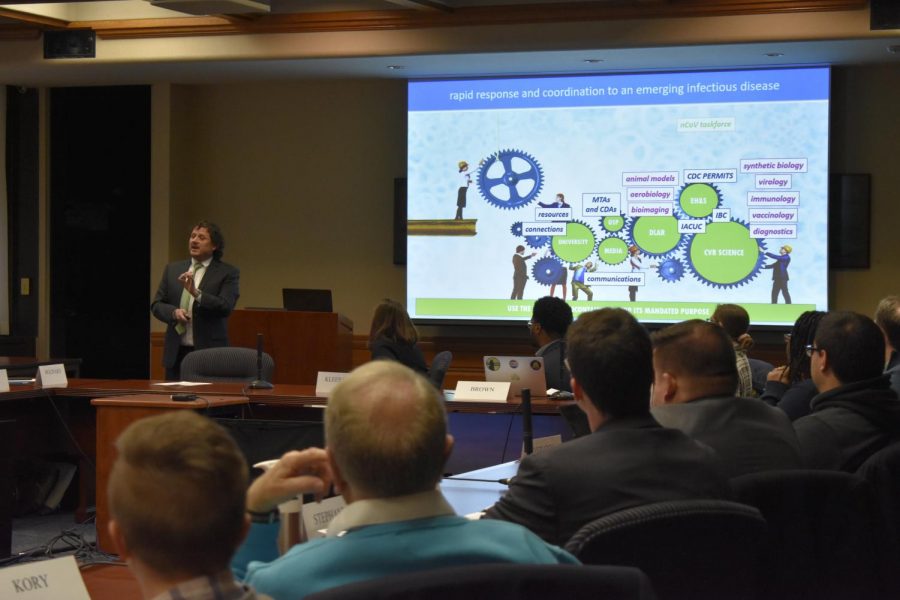CEPI invests $4.9 million in Pitt, other institutions developing COVID-19 vaccine
Romita Das | Staff Photographer
Dr. Paul Duprex, director of Pitt’s Center for Vaccine Research, speaks about COVID-2019 at a February Senate Council meeting.
March 19, 2020
Pitt’s Center for Vaccine Research is part of a consortium receiving a $4.9 million grant from the Center for Epidemic Preparedness Innovations to develop a COVID-19 vaccine candidate.
Pitt will be partnering with Institut Pasteur, a French center for biomedical research, and Themis, a biotech company.
“It is our mandated role to respond rapidly to global outbreaks such as COVID-19; to develop animal models of disease; to use these to test the efficacy of candidate vaccines such as recombinant measles viruses expressing a range of SARS-CoV-2 genes,” Paul Duprex, the director of the Pitt CVR, said in a press release.
The University announced in February that it would be receiving samples of the novel coronavirus in an effort to develop an intervention such as a vaccine.
CEPI’s grant will be used in creating a vaccine candidate based on the measles vector platform, which uses a modified measles vaccine as a vehicle for specific antigens to be delivered to the immune system.
“As part of the COVID-19 Task Force set up in January 2020, after our isolation of the coronavirus strains detected in France, the proprietary measles vector (MV) technology was chosen to develop a vaccine against SARS-CoV-2 leveraging our extensive experience with human measles vector technology and an MV-SARS-CoV-1 candidate,” Stewart Cole, president of the Institut Pasteur, said in a press release.
The funding provided by CEPI will cover the cost of preclinical testing, manufacturing of vaccine materials and preparation for phase 1 testing of the vaccine.
To date, CEPI has invested in other universities across the globe, such as the University of Hong Kong, the University of Oxford and the University of Queensland.
“By investing in a range of partners and vaccine technologies, we are giving ourselves the best chance of developing a vaccine that can stop COVID-19 in its tracks,” Richard Hatchett, the CEO of CEPI, said in a press release.








